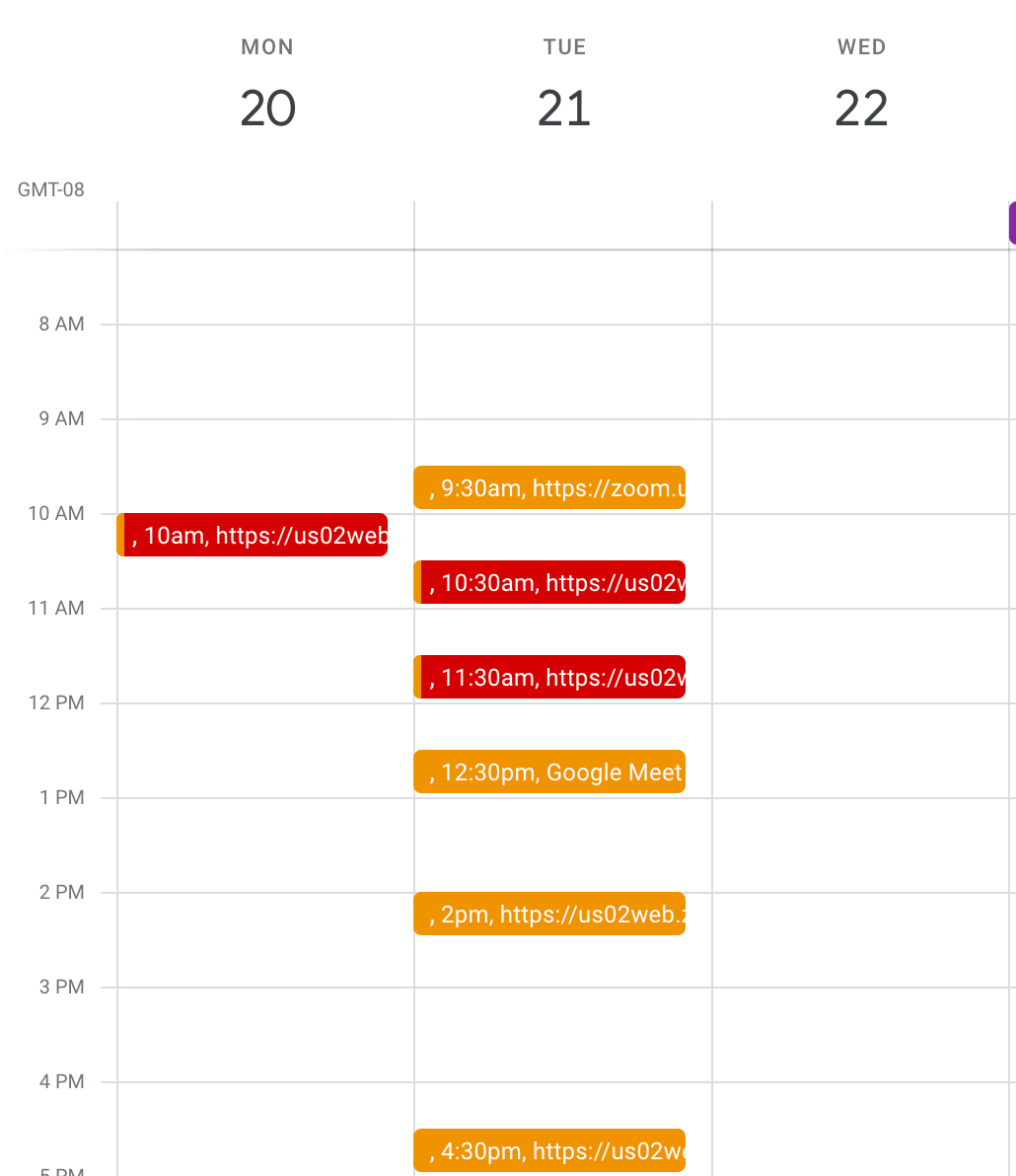How empty spaces in your calendar lead to better decisions
Plus why building your emotional competence is more important than frameworks and the silliness of expecting blocks of time from your team.
In this week’s newsletter, you will learn three separate ideas, giving you the luxury of choosing the one that seems the most attractive to you. I’ll touch upon the legacy of the Industrial Revolution, the importance of emotions in decision-making and how your calendar could be crippling your ability to make better decisions.
Here are the three ideas covered this week:
1. The value of building emotional competence for leaders who feel comfortable making great decisions
2. Why we all need more empty space to connect the dots of our ideas
3. How the notion of “blocks of time” still permeate decision-making within companies
Let’s jump right in!
Building Emotional Competence
I recently delivered a seminar to the Canadian Professional Accountants of Ontario (CPAs) on how to make better decisions. One idea ended up resonating strongly with several of the participants, something that took me by surprise. How to build your emotional competence.
I argued that building your emotional competence can provide a higher ROI than learning another framework. Emotions drive many of the decisions we make and recognizing them in ourselves and others, can increase the likelihood of success. Ignoring them can derail any perfectly designed framework.
One mentioned that his CEO liked to involve herself late in the decision-making process, causing the team to retrace their steps and discard previous work. The solution was to engage the CEO earlier, focusing on the importance of her feedback, using her ego to their advantage.
Another mentioned that he was involved in a major software upgrade project and knew that he would need the buy-in from his VP of Sales, who had a strong preference for a specific software. Instead of trying to convince him to change his mind, he chose options that would integrate with his choice, saving himself countless debates and discussions.
Once you master the frameworks, you need to work on the intangible factors and there’s no better place to start than with your emotional competence.
Takeaway: Building our emotional competence allows us to recognize the emotions driving the decisions around us.
Empty Space to Connect the Dots
I spend a significant amount of my professional time on calls—video, audio and in-person. I realized recently that I was missing out on many of the insights that arose in these calls because I lacked enough time to process them.
I made a simple tweak to my schedule, giving myself 15 - 30 minutes after every call, before jumping onto the next thing. Here's what my calendar looks like over the next few days.
I’ll admit that I feel a strong urge to feel those empty spaces with some kind of activity but I remind myself that emptiness is exactly what I need. I’ll spend a few minutes mentally going through the following questions:
Did I learn any new ideas that I should implement in my work?
What actions do I need to take going forward?
Do I owe this person anything that should go on my to-do list?
Did the call go as expected?
These empty spaces give us an opportunity to connect the dots of ideas. You can use the emptiness to ponder and evaluate what you should do next. If you feel like you don’t spend enough time being strategic, adding empty spaces is a small step to remedy your imbalance. Being able to reflect on ideas and conversations is a crucial skill when making strategic decisions.
For those who have been deeply indoctrinated in the non-stop approach to work, taking a pause can feel jarring, for busyness is the most attractive form of productivity. You can change that, starting this week.
Takeaway: We all need time to process ideas but we often don’t include deliberate pauses in our calendar, opting to go through our days without breaks or respite.
Buying Block of Times
The Industrial Revolution created a new type of work arrangement: trading time for money. The worker, or employee in modern terms, didn’t produce and sell their own goods (unlike farmers and craftsmen) but instead provided one small piece in a larger manufacturing machine.
Bosses spoke about “buying blocks of time”, something that made sense when the relationship between time and output was clear. If you spent two more hours painting cans, the company would have more cans available to sell.
All of this has changed with the rise of the knowledge worker. Organizations now face problems that can’t be solved by just “buying more time.” Insights could take a few minutes or a few hours. Trying to cram more into a specific day may be counterproductive in the long run as it decreases the chances of generating truly impactful insights.
The idea of blocks of time underlies the ongoing battle of remote work. Managers expect their employees to be available during 9 - 5, because that’s what they are buying when they hand out salaries.
As organizations head into budget season, it is important to keep the distinction in mind. Don’t see your team as blocks of time but think about the potential value and outcomes they could deliver. Whether that happens in eight or two hours, shouldn’t make a huge difference. One insight could be worth millions of dollars.
Don’t strive to control the time of your team. Focus on driving tangible outcomes and let them figure out the best way of getting there. After all, the Industrial Revolution took place more than two hundred years ago. It’s probably time to let go of some concepts it introduced.
Takeaway: Demand outcomes and results from your team instead of arbitrary blocks of time.
Weekly Video
I wrote recently on how to level up your strategic thinking and here are the same ideas in a video format. I covered three frameworks that you can use this week and talk about why being good at what you do (tactical excellence) can get in your way.
That’s all for this week! Enjoy the rest of your week!
Talk soon,
Ruben






